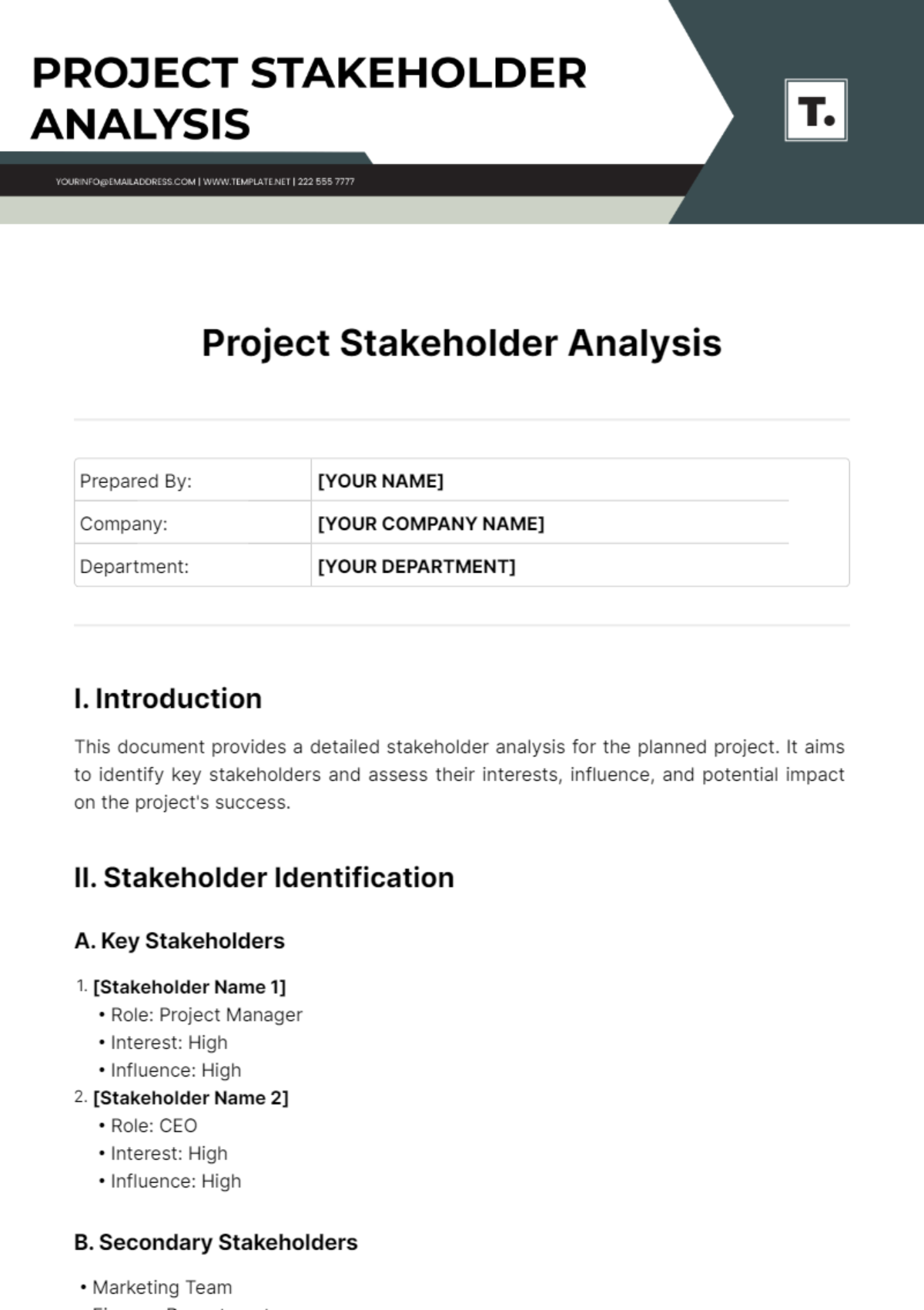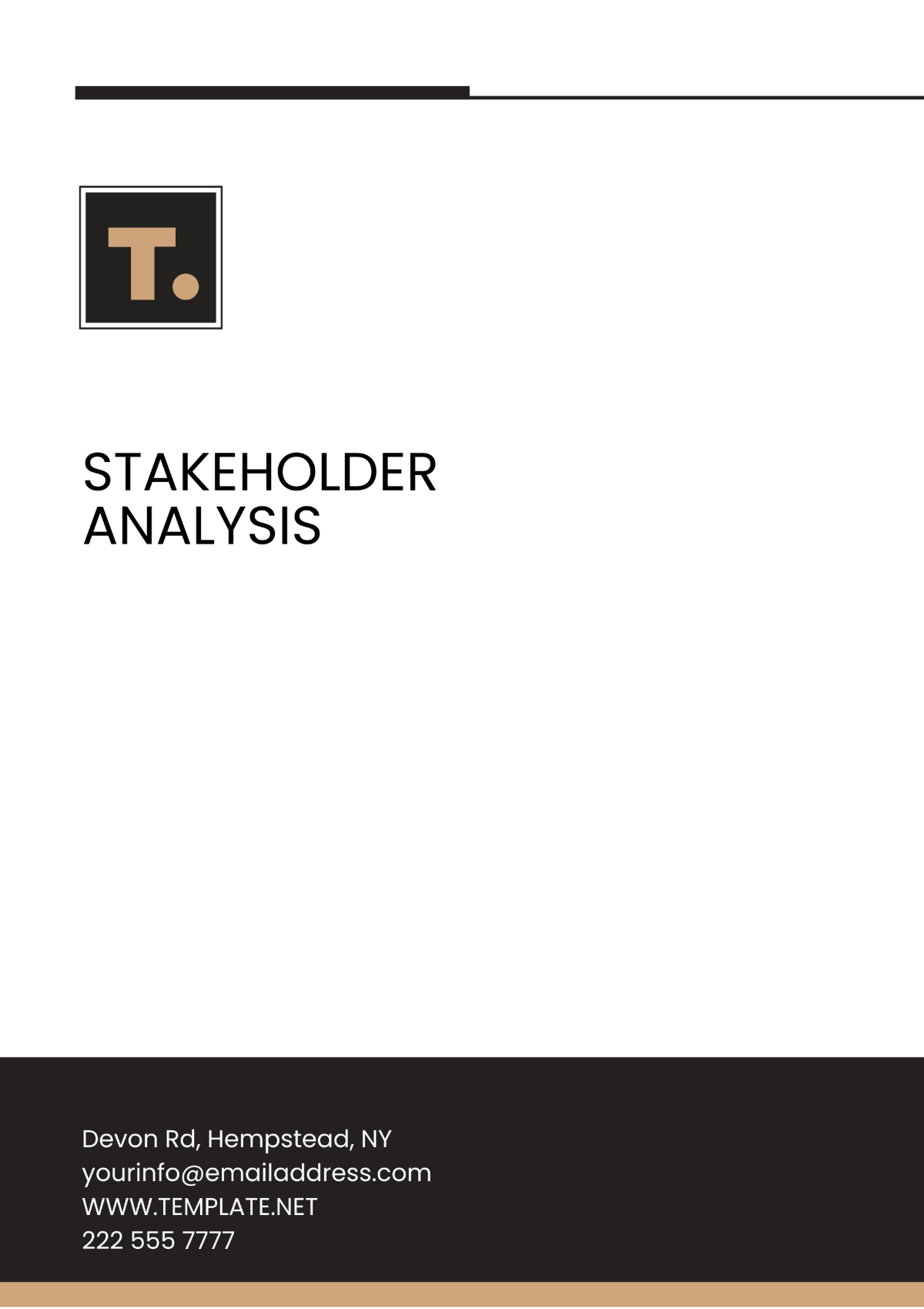Stakeholder Analysis
Prepared By : | [YOUR NAME] |
Department : | [YOUR DEPARTMENT] |
I. Executive Summary
This Stakeholder Analysis Report comprehensively reviews the key stakeholders involved with [PROJECT/ISSUE NAME]. This analysis aims to identify stakeholder influences, expectations, and potential impact on project success. It is intended to guide [YOUR COMPANY NAME] in managing communications and relationships effectively throughout the project lifecycle.
II. Stakeholder Identification
A. Internal Stakeholders
Senior Management
Project Team Members
Operational Staff
B. External Stakeholders
Clients/Customers
Suppliers and Vendors
Regulatory Authorities
III. Stakeholder Analysis
A. Stakeholder Mapping
Use tools such as Power/Interest Grid to classify stakeholders based on their power over and interest in the project.
B. Stakeholder Profiles
Each stakeholder group identified will have detailed profiles that outline:
Expectations from the project
Potential impact on project phases
Communication strategies
IV. Stakeholder Engagement Strategies
A. Engagement Objectives
Define clear objectives for each stakeholder group.
Align engagement strategies with overall project goals.
B. Communication Plan
Detail the methods and frequency of communications with different stakeholders:
Email updates
Meetings
Reports
C. Feedback Mechanisms
Establish systems for stakeholders to provide feedback throughout the project:
Surveys
Feedback Forms
Interactive Workshops
V. Risk Management
Analyze potential risks associated with stakeholders, including resistance or conflicts, and propose mitigation strategies:
Regular stakeholder analysis updates
Engagement tracking
Conflict resolution processes
VI. Conclusion
This report underscores the importance of stakeholder analysis in achieving project objectives. By understanding stakeholder dynamics, [YOUR COMPANY NAME] can enhance decision-making, manage stakeholder expectations effectively, and improve overall project outcomes.



